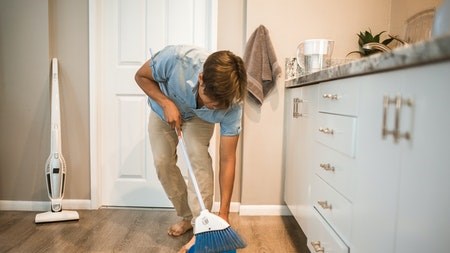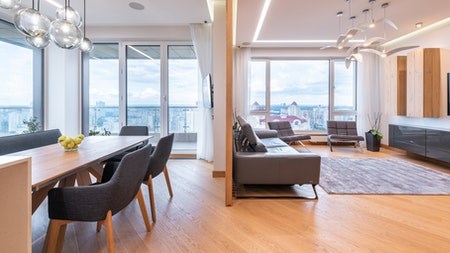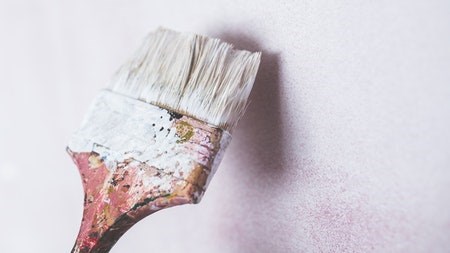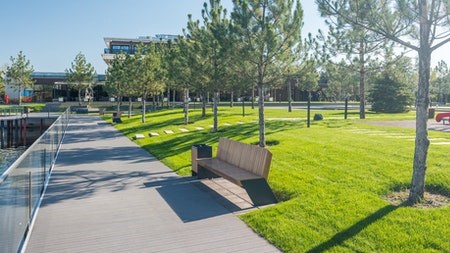An accident can happen in a flash, and you don't need to be involved in a car crash for it to have a significant impact on your life. Even at home, your world can be turned upside down – in the blink of an eye.
Many accidents around the home can be avoided through mindfulness and just a little bit of forethought.
Keep it neat
Make it a rule never to leave things lying around – indoors or outdoors. Innocuous items like clothing and shoes or toys lying where they are not expected become hazards for someone to trip over, fall and possibly be seriously injured.
- Put electrical extension cords safely out of harm’s way when you have finished the task - or if you will only be continuing later or the following day.
- The same applies to garden hoses – roll them up and store them out of the way after using them.
- Never leave garden rakes lying on the ground with the tines facing up. It’s better to always stand them against a wall or a tree, along with other garden tools such as spades, shovels and forks, with sharp ends facing the support.
- Cupboard doors or drawers standing open are safety hazards - it is only too easy to bump your head or shin against them unwittingly.
Flooring
Slippery floors are an accident waiting to happen. Many tiled floors are pretty safe when dry, but just a tiny amount of surface water can turn them into traps for the unwary.
- If you are installing new floor tiles, be sure to choose ones with a non-slip finish.
- Apply a good anti-slip preparation for existing tiles – available from most hardware stores.
- Small loose carpets can cause nasty accidents when they unexpectedly move out under you. Of course, the best option is to get rid of them, but if you need them be sure to anchor them securely with a non-slip Gecko carpet grip.
- Also, make sure that loose carpets don't have upturned corners that can catch your foot in passing.
- Another possible cause of accidents is varying floor levels in a home. A sunken lounge may look glamorous, but it’s all too easy to lose your footing on the one or two stairs down from the adjoining kitchen or dining room. Make sure any variations in floor levels are clearly demarcated, perhaps with different coloured tiles or carpeting.
- Stair treads should be wide enough to accommodate an adult foot comfortably, and the rise should be shallow - not more than half the height of the tread width.
Bathrooms
Tiled floors and water make the bathroom one of the most hazardous rooms in the home. Slipping in the shower or getting out of the bath are relatively common causes of household injuries, so you need to take extra care here - especially if you are over 60.
- Make sure all bath mats are non-slip.
- Be mindful of sunken baths, especially when getting out of the shower. An inadvertent backward step could result in broken bones.
- Also, be aware of the steps up to a raised bath. The difference in floor levels can easily result in a fall with nasty consequences.
Windows and doors
Large clear glass sliding doors and windows are great for allowing natural light into your home. But you can seriously injure yourself if you walk into one under the impression that it’s open when it is closed.
Make sure windows and doors have enough markers to make them visible at all levels from the inside and outside – to adults and small children as well as pets.
- Sandblasted patterns are very effective and won’t obstruct light.
- Attractive transfers are widely available in various colours, shapes and styles to suit every décor.
Garage doors
Whether your garage doors are the tilt-up or roller door type, you should remember that they are heavy, and any impact can cause serious injuries.
When opening or closing roller doors, don't be tempted to duck under them before they have reached the top of their travel. It is so easy to misjudge the height of the half-open door, and a collision could land you in hospital with a severe concussion.
Regularly check the mechanism on tilt-up doors to ensure that the weights inside are secure and can’t accidentally be dislodged. Again, don’t be tempted to duck under a half-open door in case it accidentally comes down on your head.
Ceiling fans
Ceiling fans will help you to keep cool in summer. But if your fans are controlled with pull cords, make sure these are long enough so that you can comfortably reach them with your feet flat on the floor. If you have to stretch, there’s a good chance you could lose your balance and break an arm – or worse.
Ladders
Most people know that they shouldn’t climb up a ladder without having someone on hand to hold it steady. Yet it is something almost everyone ignores, and as a result, far too many household accidents involve people falling off ladders.
Ladder safety tips:
- Choose the right ladder. Many injuries occur when using a ladder too short for the job. Never place the ladder on a table or other object to extend its reach or stand on the top rung to gain the necessary height.
- Inspect the ladder before use. Damaged or worn ladders can easily break while being used.
- Make sure the surface you place the ladder on is level and firm. For example, never put a ladder in front of a door that is not locked, blocked, or guarded.
- While using a ladder, always maintain three contact points with the ladder to ensure stability.
- Never try to reach for tools, nails, or other items while on the ladder. Instead, get off the ladder, move it, and then climb back up.
- And to ensure a ladder is secure, always try to have someone support the base while you are on it. If this isn't possible, make sure the ladder has an appropriate foot to prevent the ladder from slipping. The feet of the ladder can also be staked if you are using it outside and no one is available to support it.
- To reach high shelves in kitchens and bedrooms, always use a short stepladder with a wide footprint and rubber ferrules for extra grip. Never, ever stand on a chair.
After a fall
Even if you take precautions, you may not be able to prevent all accidents. If you or anyone in your home does get hurt, be sure to get the best medical help possible. It could be the difference between making a successful recovery and lifelong medical problems.




